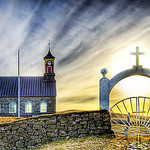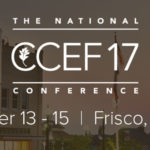This is a guest post by Pastor Mike Sharrett, the pastor at Redeemer Presbyterian Church, a PCA church in Lynchburg, Virginia.
 Paul makes the amazing assertion in Philippians 3:20 that “our citizenship is in heaven.” That no doubt resonated well with his audience because Philippi was a Roman colony and therefore its inhabitants enjoyed the rights and privileges of Roman citizenship- a reason for huge civic pride. Yet Paul says that because we belong to Christ, and therefore if something is true of him it is true of all who are in union with him, believers consequently are co-citizens of Jesus’ home: heaven.
Paul makes the amazing assertion in Philippians 3:20 that “our citizenship is in heaven.” That no doubt resonated well with his audience because Philippi was a Roman colony and therefore its inhabitants enjoyed the rights and privileges of Roman citizenship- a reason for huge civic pride. Yet Paul says that because we belong to Christ, and therefore if something is true of him it is true of all who are in union with him, believers consequently are co-citizens of Jesus’ home: heaven.
So what? And how does this fact affect our thinking about peace-making? At a minimum, it means those who are guaranteed, through Christ’s spoils, a forever homeland in paradise ought to replicate on earth now the relationship glory of what we will enjoy forever: peace with God and each other. We will forever live without conflict, sorrow, sin, jealousy, enmity, strife, bitterness- you name it- if it harms peace now it will never be known in glory. Christians ought to be walking advertisements of one of heaven’s glories: perfect relational peace. That is why conflict resolution – a necessity in a fallen world – is vital to Christian witness. (John 17:21)
Consider a few implications of having a heavenly citizenship:
1. It is a citizenship defended by Jesus, King of Kings! In America we live in peace because our borders are secured by a strong military. Yet our claim on the presence of God is defended by no less than God himself. On the cross Jesus won the right to call you his own, to enjoy you as his brother, and nothing can take from him his treasure! So why not take up on one another’s behalf a strong defense for their welfare, seeing that Jesus ever lives to defend them and you? Defend their dignity, peace, and deliverance from evil. (Romans 15:2)
2. Our heavenly citizenship ought to humble us greatly. No one is born into it, but adopted into it by grace. Jesus confers on us our status as co-heirs of the world with him. We don’t earn it or deserve it. Why not treat others as fellow heirs of eternal life, co-owners, as it were, of the entire universe? What would our relationships look like if we viewed others as most vital to the health of the organization? (Philippians 2:3-4)
3. In glory there will be no need for laws. Laws restrain but there’ll be no sin to restrain, no temptation to disobey God! Obedience to God will come naturally and freely, the law being perfectly written on our hearts. Peace-makers on earth, therefore, will desire to model before others the beauty of holiness, the joy of obedience, the splendor of a heart submitted to God, the value of God’s prescribed will- all as a living advertisement of life in paradise. (1 Peter 2:12)
4. Unlike citizens of this world who have no direct access to their presidents, we have bold access to the one in charge of the universe! The White House is surrounded by acres of wooded land, high tech security and iron fences. Yet, we have instant access to the throne of grace, where we are promised bold approach to receive mercy and to find grace to help in time of need. (Hebrews 4:12) It follows then that peace-makers will utilize this incredible resource constantly, praying for one another and through our conflicts.
5. When everyone dies they lose whatever earthly citizenship they had, their body decaying under the earth. Yet the Christian hope is that heaven will come to earth, unspeakably beautiful, never lacking a thing, never threatened by anything. We will finally enjoy the full benefits of our heavenly citizenship, savoring a beauty that never gets old. The pleasures and beauties of God’s presence and paradise we’ll never take for granted. If his mercies are new every morning in this life, then in the next unimaginable satisfaction will be new every morning. Nothing will be hard to do, no boredom to cloud our souls. It will be true that we “live happily ever-after”; it will not be true that “all good things must end.” With such a future, believers can live with one another having nothing to prove, nothing to lose, a vibrant hope to splash on one another.
photo credit: Stuck in Customs via photopin cc






